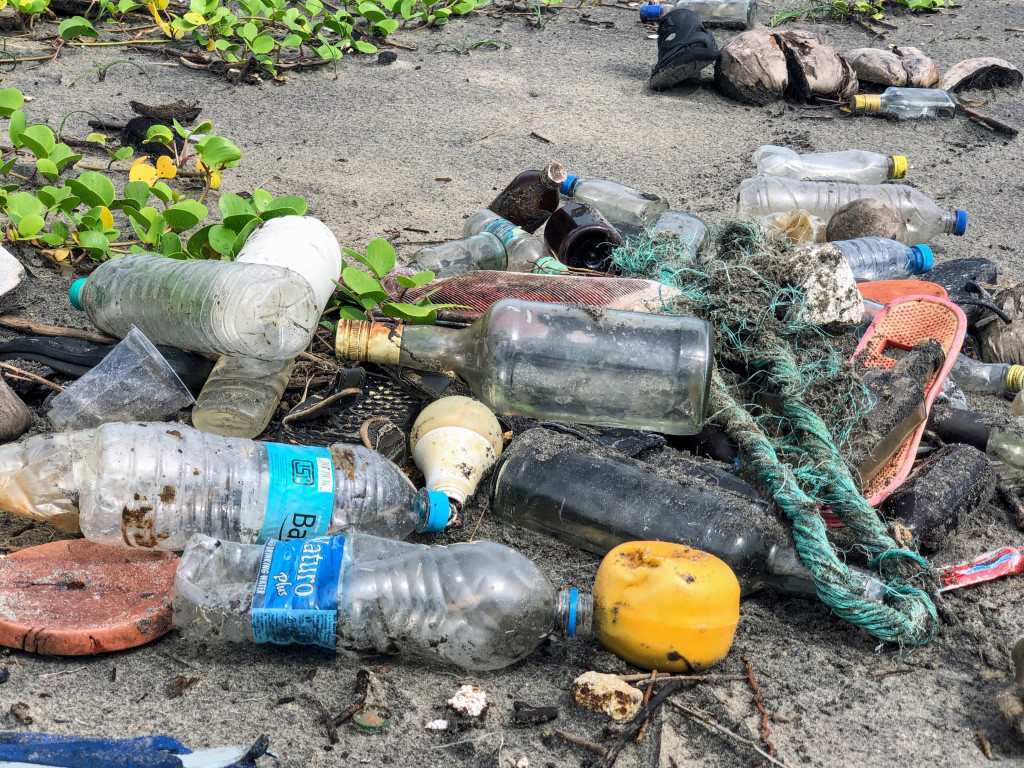In this article, you will explore the often overlooked topic of the environmental impact of bench grinders. While these handy tools are commonly used in workshops and garages around the world, we rarely stop to consider how they may be affecting our planet. By examining the various components, energy consumption, and waste generation associated with bench grinders, we can gain a better understanding of their ecological footprint. Join us as we uncover the hidden consequences and explore potential solutions for a more sustainable future.

1. Energy Consumption
1.1. Power Requirements of Bench Grinders
When it comes to energy consumption, bench grinders can have significant power requirements. These machines typically run on electricity, and their power demand can vary depending on the size and specifications of the grinder. It is essential to consider the power requirements of bench grinders because higher power consumption means more energy usage, which ultimately impacts the environment.
1.2. Impact of Energy Consumption on the Environment
The energy consumption of bench grinders has a direct impact on the environment. As these machines draw electricity from the power grid, the generation of that electricity may contribute to greenhouse gas emissions and other forms of pollution. The generation of electricity often relies on the burning of fossil fuels, such as coal or natural gas, which release carbon dioxide and other harmful gases into the atmosphere. Therefore, it is crucial to minimize energy consumption to reduce the environmental impact of bench grinders.
2. Carbon Emissions
2.1. Carbon Footprint of Bench Grinders
Bench grinders contribute to carbon emissions through the indirect release of carbon dioxide during electricity generation. The carbon footprint of bench grinders depends on the energy source used and the efficiency of the power plants generating the electricity. Fossil fuel-based power plants have higher carbon emissions compared to renewable energy sources like solar or wind. Therefore, bench grinders powered by electricity sourced from renewable energy help reduce carbon emissions.
2.2. Contribution to Global Warming
The carbon emissions produced by bench grinders contribute to global warming and climate change. Carbon dioxide is a greenhouse gas that traps heat in the Earth’s atmosphere, leading to rising temperatures and environmental instability. By reducing carbon emissions associated with bench grinders, we can help mitigate the effects of global warming and preserve the planet for future generations.
3. Generation of Waste
3.1. Grinding Wheel Waste
One of the primary sources of waste generated by bench grinders is grinding wheel waste. Over time, the abrasive discs used in grinding operations wear down and need to be replaced. These worn-out grinding wheels contain various materials, such as abrasives, binders, and metallic components. Improper disposal of these waste grinding wheels can contribute to environmental pollution and resource depletion.
3.2. Metal and Dust Waste
In addition to grinding wheel waste, bench grinders also generate metal and dust waste during operation. The grinding process often produces metal shavings and fine dust particles, which can pose environmental and health hazards if not properly managed. The disposal of metal waste and dust requires careful attention to prevent pollution and ensure the safety of both the operators and the environment.
3.3. Disposal Challenges
The proper disposal of waste generated by bench grinders poses specific challenges. Grinding wheel waste, metal shavings, and dust need to be collected, sorted, and disposed of in accordance with local regulations and environmental guidelines. It is essential to handle these waste materials responsibly to prevent contamination of soil, water, and air, thus minimizing the negative impact on the ecosystem.
4. Air Pollution
4.1. Emission of Particulate Matter
Bench grinders can contribute to air pollution through the emission of particulate matter. The grinding process generates fine dust particles that can become airborne and spread into the surrounding environment. These particulates can contain hazardous substances, including metals and chemicals present in the grinding wheel or the materials being ground. Inhaling these particles can lead to respiratory issues and other health problems for both operators and nearby individuals.
4.2. Health Effects of Air Pollution
The air pollution caused by bench grinders can have severe health effects on both operators and the surrounding community. Inhaling particulate matter can lead to respiratory illnesses, such as asthma, bronchitis, and other respiratory infections. Prolonged exposure to airborne pollutants can also increase the risk of developing cardiovascular diseases and contribute to long-term lung damage. It is crucial to mitigate air pollution from bench grinders to protect the health and well-being of both workers and the general public.

5. Water Pollution
5.1. Cooling Water Contamination
Bench grinders require cooling water to prevent overheating during operation. However, this cooling water can become contaminated with various pollutants, including metal particles and suspended solids. If not properly managed, the discharge of contaminated cooling water can pollute nearby water bodies, such as rivers or lakes. Water pollution can have detrimental effects on aquatic life and ecosystems, compromising their health and overall balance.
5.2. Impact on Aquatic Life
The pollution caused by contaminated cooling water from bench grinders can have a significant impact on aquatic life. Metals and other pollutants present in the water can be toxic to fish, invertebrates, and other aquatic organisms. These pollutants can accumulate in the food chain, leading to bioaccumulation and biomagnification, and ultimately affecting the entire aquatic ecosystem. It is essential to implement proper water treatment and discharge protocols to minimize the negative impact on aquatic life.
6. Noise Pollution
6.1. Occupational Noise Exposure
Bench grinders can contribute to noise pollution, particularly for operators working in close proximity to the machine. The grinding process often generates high levels of noise, which can exceed safe occupational exposure limits. Prolonged exposure to excessive noise can cause hearing loss, stress, and other health issues for the operators. Implementing measures to control and reduce noise levels is essential to protect the hearing health and well-being of workers.
6.2. Effects on Surrounding Environment
In addition to occupational noise exposure, bench grinders’ noise pollution can also impact the surrounding environment and nearby residents. Excessive noise can disrupt local communities and negatively affect quality of life. It may disturb wildlife, interrupt communication between species, and contribute to stress and sleep disturbances among individuals living in the area. Minimizing noise pollution from bench grinders is necessary to create a more harmonious and sustainable environment.

7. Resource Depletion
7.1. Energy and Raw Material Consumption
Bench grinders consume not only energy but also raw materials during their operation. The production of bench grinders requires various materials, including metals, plastics, and electronics. The extraction and processing of these raw materials can have a significant impact on the environment, including habitat destruction, deforestation, and the release of pollutants. By reducing energy consumption and opting for more sustainable materials, we can help minimize the depletion of natural resources.
7.2. Sustainable Alternatives
To address the issue of resource depletion, it is essential to explore and promote sustainable alternatives to traditional bench grinders. Manufacturers can adopt environmentally friendly production processes and incorporate eco-design principles to reduce the use of raw materials. Additionally, investing in energy-efficient technologies and exploring renewable energy sources can minimize energy consumption and mitigate the impact on resource depletion.
8. Impact on Biodiversity
8.1. Habitat Destruction
The operation and manufacturing processes associated with bench grinders can contribute to habitat destruction. Extraction of raw materials, such as metals and minerals, often involves the clearance of natural habitats, leading to the loss of biodiversity and ecosystem degradation. Habitat destruction can disrupt the delicate balance of ecosystems, displace native species, and reduce the overall biodiversity of the affected areas.
8.2. Disruption of Ecosystems
The environmental impact of bench grinders extends beyond habitat destruction. The pollution generated by these machines, including air and water pollution, can further disrupt ecosystems. Pollutants introduced into the environment can harm and even kill plant and animal species, leading to imbalances in the local ecosystem. This disruption can have far-reaching consequences, affecting the stability, productivity, and resilience of ecosystems as a whole.
9. Occupational Health and Safety
9.1. Health Risks for Operators
The operation of bench grinders poses various health risks for operators. Exposure to airborne particulate matter, especially without proper respiratory protection, can lead to respiratory issues. Additionally, improper handling of grinding wheels, metal debris, and cooling water can result in cuts, abrasions, and other physical injuries. It is crucial for operators to be aware of these potential hazards and follow appropriate safety protocols to minimize the risk of accidents and occupational health issues.
9.2. Safety Precautions and Regulations
To ensure the occupational health and safety of bench grinder operators, it is essential to implement appropriate safety precautions and adhere to relevant regulations. These precautions can include wearing personal protective equipment (PPE) such as safety glasses, hearing protection, and respiratory masks. Additionally, regular maintenance and inspection of the machines, proper training for operators, and strict adherence to safety guidelines can help prevent accidents and promote a safe working environment.
10. Environmental Regulations and Standards
10.1. Legislation and Compliance
Environmental regulations and standards play a crucial role in mitigating the environmental impact of bench grinders. Governments around the world have implemented regulations and guidelines to control air and water pollution, manage waste disposal, and promote sustainable practices. Compliance with these regulations is essential for manufacturers and operators to minimize their environmental footprint and contribute to a cleaner and healthier planet.
10.2. Industry Practices and Responsibility
In addition to legal requirements, industry practices and corporate responsibility also play a vital role in minimizing the environmental impact of bench grinders. Manufacturers can adopt eco-friendly manufacturing processes, invest in research and development for sustainable materials and technologies, and establish effective waste management systems. Furthermore, promoting awareness and education within the industry can encourage responsible practices and foster a culture of environmental stewardship.
In conclusion, bench grinders have a significant environmental impact across various aspects, including energy consumption, carbon emissions, waste generation, pollution, resource depletion, impact on biodiversity, occupational health and safety, and compliance with environmental regulations. To mitigate this impact, it is crucial to prioritize energy efficiency, adopt sustainable production methods, and implement appropriate safety measures. By taking these steps, we can work towards reducing the environmental footprint of bench grinders and creating a more sustainable future.


